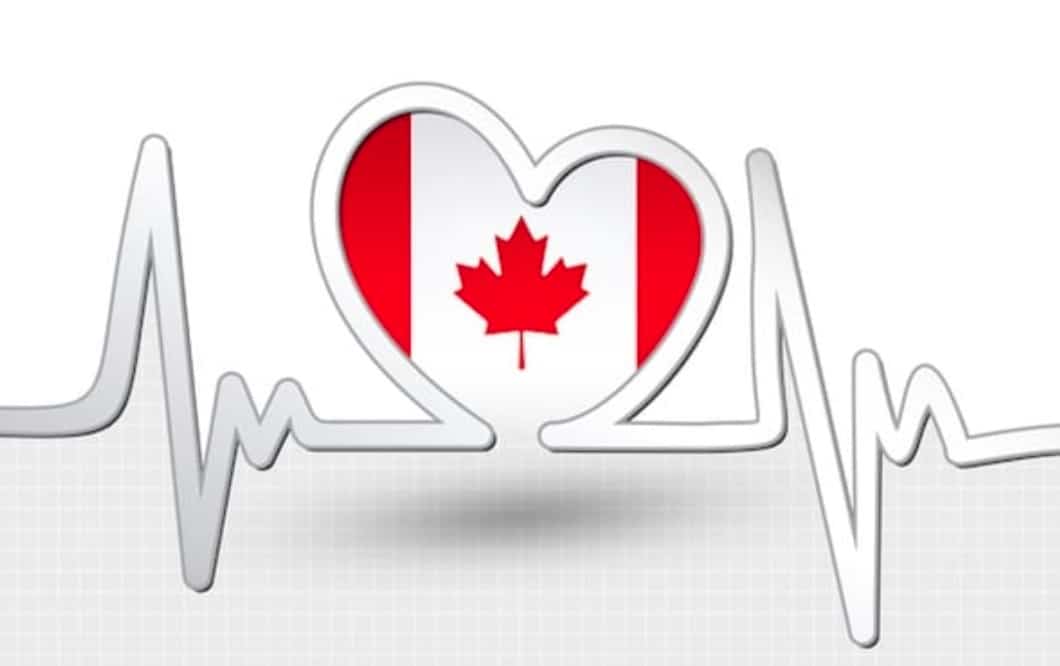
by Alliance VITA | December 8, 2020 | News, Bioethics, Human embryo research
Following a transplant with her own ovarian tissue, a 27-year-old woman, Gwenola, recently became a mother at the Nantes Medical Center in France.
Since age 18, Gwenola has suffered from lymphoma. Given that the chemotherapy is toxic to the ovaries, she had her ovarian tissue cryopreserved at the age of 20, prior to re-initiating chemotherapy, in an attempt to preserve her fertility.
According to the Medical Center in Nantes “We then suggested that she participate in the national clinical trial of ovarian transplants known as “DATOR”, (Development of ovarian tissue auto transplants to restore ovarian function). The trial is headed by the Medical Center in Besançon, which coordinates ovarian cortex transplants in France and compiles the resulting data.”
Following her chemotherapy, Gwenola experienced an early onset of menopause, as expected. Nevertheless, her fertility was quickly restored following the ovarian transplant: her menstruation cycle began just 5 months after her operation, she was pregnant a year later, and now she has a healthy 4-month-old baby.
In France, the first successful ovarian transplant was performed at the Medical Center in Besançon, in 2009.

by Alliance VITA | November 27, 2020 | News, Family
Many experts and associations are sounding the alarm on France’s adoption reform bill due to controversial measures which threaten the child’s best interests.
The bill to reform adoption in France was recently tabled, in follow-up to the recommendations submitted on October 10, 2019 to Adrien Taquet, the Secretary of State for Child Protection. The legislation is sponsored by MP Monique Limon and her colleagues from President Macron’s party “LREM”: La République en Marche. Concerned professionals had already voiced their alarm about some proposals, such as extending adoption to unmarried couples, as well as allowing simple, vs. full, adoption, which is less secure for children.
Allegedly, the bill aims to facilitate the adoption of children who are currently assigned to children’s social services (“ASE or Aide Sociale à l’Enfance”). This service places approximately a thousand children in families or foster homes. Nevertheless, since these children are not considered to be wards of the state, under current law they cannot be adopted.
According to the National Observatory for Child Protection, (“ONPE: l’Observatoire National de la Protection de l’Enfance), the latest annual data show that 10,676 parental applications were approved for adoption in 2018, although merely 647 state wards were adopted in France the same year. According to the Foreign Affairs Minister, 615 children entered France from abroad in 2018 for international adoptions, compared to 2,000 foreign children adopted in 2011, and 4,000 children in 2006.
The Children’s Lawyers Association (“Juristes pour l’enfance “) has published a detailed warning listing the pitfalls in this bill. One drawback includes the fact that parents would no longer be able to entrust their child to an Organization Authorized for Adoption (“OAA: Organisme Autorisé pour l’Adoption”) in France.
The lawyers point out that “in the adoption reform bill, if a parent decides to confide a child to social services, he accepts that his child automatically becomes a ward of the state. It would then be incumbent upon family counselling services to elaborate a development project for the child’s life, which may or may not include adoption. However, a parent may not want to entrust his child to social services unless he is absolutely sure that his child will be adopted. Since there is no guarantee of adoption once the child is considered to be a state ward, every parent must be able to contact an “OAA” to be certain that his child will be adopted by a family. » In addition, these OAA’s accept children with disabilities for whom they find adoptive families thanks to the services the associations provide. “With this bill, currently authorized agencies like Emmanuel-SOS Adoption would simply disappear, even though social services frequently contact them to find families for severely disabled wards of the state. Among the families who have already received accreditation for adoption, Emmanuel-SOS Adoption also endorses families who have been specifically prepared to accommodate the needs of disabled children. Ever since Emmanuel-SOS Adoption was founded in 1975, it has provided a family to over 2,000 children, even though over half of the children were gravely ill or had a severe disability. »
As reported by the French newspaper “La Croix”, a group of lawyers and adoption specialists assert that the new bill violates fundamental rights. Their analysis and proposals have been published in a white paper addressed to parliamentarians calling for the legislative process to be postponed.
In addition, this bill, according to its’ authors, disconnects adoption and matrimonial status of the adoptive party to consider all applicants equally. The purpose of this is to extend adoption to cohabiting couples, and to couples having signed a PACS agreement (civil solidarity pact) in order to avoid discriminations against single persons, or same sex couples.
The Children’s Lawyers Association emphasizes that “Adoption, which is focused on the child’s best interests and ‘only’ on the child’s best interests should not be used to seek equality between adoption applicants. It must be exclusively focused on the child’s best interests.” Adoption cannot be used to oblige adults’ contentions.
At the French National Assembly the legal committee adopted the text on November 24, 2020, prior to its examination in the plenary session beginning on December 2, 2020.

by Alliance VITA | November 27, 2020 | Coronavirus, News, Old age and Dependency
To address the ethical aspect of “managing numerous patients, with or without Covid, admitted to healthcare facilities during the epidemic”, the French Health and Solidarity Minister called upon the “CCNE” (National Consultative Ethics Committee). Two weeks later, on November 17, 2020 the “CCNE” published its recommendations.
The rapidly formed working group at the “CCNE” based their new recommendations on previous ones, such as Opinion N° 106, from February 2009 on “Ethical Issues Raised by a Possible Influenza Pandemic”, and the March 13, 2020 opinion entitled “Ethical Issues in the Face of a Pandemic “. In addition, the committee evaluated the advances in scientific knowledge, medical practice, and input from other European countries facing the same challenge, as well as recent hearings and contributions from national and international companies.
This past October, the French healthcare system was again overwhelmed in its’ attempt to treat both Covid and non-Covid patients during the “second wave” of the pandemic. The latest recommendations issued by the “CCNE” are based on experience from the initial outbreak.
Primarily, it points out that current resources are insufficient to meet healthcare needs, and it emphasizes that it is impossible to rapidly recruit and train enough healthcare workers to meet current needs.
Emergency reorganization decisions implemented to accommodate Covid patients, such as postponing surgical and medical procedures to dedicate more beds to COVID patients and prioritizing the persons needing care and treatment, raised a number of ethical issues. Although we are facing an unprecedented emergency situation, our healthcare system shouldn’t be based on exceptions.
Prioritizing during a Pandemic: An Ethical Challenge for Healthcare?
Prioritizing patients is a well-known practice employed during emergencies and disasters when healthcare workers are faced with the painful dilemma of “saving as many lives as possible while taking limitations into account.” This is based on a benefit/risk ratio. When resources are insufficient, instead of doing triage, an egalitarian logic of “first come, first served” is applied. A more utilitarian logic would try to save as many lives as possible for the greater good of all.
Ethical values regarding patient care are being put to the test: will all patients be able to receive appropriate care? Are individual interests always compatible with the common good?
In pulmonary resuscitation units, admissions are primarily based on medical criteria which are thought to be objective, such as the severity of a patient’s condition, his prognosis and his future quality of life, based on “reasonable hope for substantial recovery”. The assessment is based on the four ethical principles of beneficience, respect for autonomy, nonmaleficence, and justice.
The “CCNE” Urges Vigilance
The “CCNE” highlights 4 aspects requiring vigilance:
- No matter how scarce the resources are, it can never justify relinquishing ethical principles that demand solidarity, attention to the most vulnerable and justice. Making medical decisions which are ethical would be facilitated by creating ethical support teams, and employing collegial procedures, on a case-by-case basis.
- Prioritizing patients could be driven by a decision to provide care to those who would be most affected if treatment were postponed or cancelled. Regardless of the circumstances, every patient should receive basic treatment, comfort care and palliative care if necessary.
- Resources could be better managed by decentralizing the territorial control of the healthcare system, and eliminating the lines drawn between public vs. private, hospital vs. city, and healthcare vs. social care. Situational awareness should be based on real feedback from healthcare workers and patients.
- The confidence and support of all citizens should be increased by allowing them to take a more effective part and by restoring democratic deliberations.
8 Recommendations Suggested by the CCNE:
- To optimize access to healthcare by improving the coordination between city officials, public and private hospitals, medical-social establishments (nursing and retirement homes) and reserve healthcare personnel.
- To develop a meaningful “triage” scale to designate “warning threshold levels” in order to better manage “Covid and non-Covid patients” and to minimize deprogramming any medical activities.
- To establish a decision-making flow chart, which is ethical, collegial and interdisciplinary, with written traceability and clear communication, to reschedule medical activities and to prioritize patients, on a case-by-case basis, which takes the patient’s wishes into account.
- To provide healthcare for the most urgent cases and for patients who are at greater risk if their care is withheld or postponed. It must remain “ethically prohibited” to prioritize based on age, disability or precarity. No protocol should be used without considering the ethical implications on a case-by-case basis.
- To reinforce democratic healthcare: Patients and loved ones must be consulted for all decisions regarding an exceptional circumstance and designated “user representatives” should be consulted for decisions involving healthcare coordination.
- To improve healthcare access for everyone by providing communication updates for medical activities, whether they are ongoing, postponed, or cancelled.
- To provide ethical support to the teams confronted with the ethical dilemma of choosing priorities, by creating mobile or on-call outreach programs to help comply with ethical requirements.
- To collect feedback from local workers to assess the consequences of prioritization decisions.
Attributing resources when they are insufficient is an ethical public health issue which deserves to be evaluated collectively, beyond the scope of the medical profession.
The “CCNE” encourages the government to re-examine its priorities, taking account of the lessons learned from the initial phase of the pandemic, and it points out that failing to respect some fundamental rights just to minimize health risks has been strongly disputed. Can individual health concerns be given priority at the cost of restricting our rights and by relegating priority access to healthcare for certain selected individuals?
Any new public health policies should take into account the current lack of essential health resources and the time required to train healthcare professionals. Will the “Ségur” health agreements signed in July 2020 be adequate?
For more information, the French Society for Counseling and Palliative Care organized an online symposium on November 20, entitled “Can Triage Be Ethical?” to clarify this sensitive issue.

by Alliance VITA | November 27, 2020 | News, ART, Infertility
The French Biomedicine Agency (“ABM”) has recently launched a national gamete donation campaign, using a marketing argument prejudicial to the best interests of the child.
According to the “ABM”, despite a significant increase in donations (up 38% between 2015 and 2016) the supply is not projected to meet the pending requests from 5000 infertile couples.
The supply is predicted to decrease even further, due to the plan to abolish donor anonymity, currently being discussed in the bioethics bill. The text states that
“Any person, who has been conceived by a gamete donation, on reaching majority may have access to his donor’s identity as well as his age, occupational status, and country of birth. If the new law does abolish anonymity, donations cannot be accepted unless this information is disclosed.” Therefore, donations are likely to decline since donors will have to meet their responsibility towards any child conceived with their gametes.
Between November 16 and December 6, 2020, the campaign’s catch phrase will be portraying potential donors as generous heroes: “Donating fulfills the hope of thousands of people who want to become parents” … However, another motivation for donating, listed in the campaign’s press kit, is the fact that “the new bioethics law has not yet been enacted; it is under discussion in Parliament. Thus, the current legal guidelines continue to be applicable for gamete donations.” This constitutes an incentive to donate one’s gametes as soon as possible before the law is passed, thus giving precedence to adults’ best interests over that of children.
As predicted by observers of bioethical evolutions, the commercialization of gametes is lurking in the background. If the French government votes to allow ART (assisted reproductive techniques) for single women or lesbian couples, a sharp increase in ART with donors is likely to follow.
Currently France and Belgium both have non-profit sperm banks, based on free donations. However once ART with a donor was authorized in Belgium, the country’s sperm banks could not meet the demand: nowadays commercial sperm banks in Denmark fulfill 80% of the requests.
In this artificial reproduction marketplace, men and women are merely considered as suppliers of raw material (oocytes and sperm) on the assembly line used to manufacture customized babies.
This summer, another step was made in this direction when an amendment was adopted to allow human gametes to be collected and stockpiled by commercial institutions. The Senators are now on the front line to stop this new kind of human commodification.

by Alliance VITA | November 20, 2020 | Euthanasia and Suicide, News
On October 6, 2020, the Minister of Justice and Attorney General of Canada tabled a bill to eliminate the end-of-life criterion for the law on euthanasia and Medical Assistance In Dying (“MAiD”).
Such a provision would make Canada the most permissive country in terms of euthanasia and thus put vulnerable individuals at great risk.
This bill, known as the “C-7 Bill”, is being reintroduced in identical terms to those previously proposed during the parliamentary session in February, just prior to the federal election and the election of a new parliament.
The laws decriminalizing euthanasia were initially voted in 2015 in Quebec, before the Federal Court legalized the particularly transgressive “MAiD” laws throughout the country in 2016. And only one year after their implementation, there is already a demand to extend this law based on emblematic cases
The C-7 bill was drafted in response to the Quebec Superior Court’s ruling handed down on September 11, 2019, commonly known as the Gladu Truchon decision.
“Mr. Jean Truchon and Mrs. Nicole Gladu, two adults suffering from major irreversible handicaps and experiencing intolerable suffering which did not impact their life expectancy, filed a court action in 2017 seeking a declaration that the restrictive federal and provincial criteria are unconstitutional. The plaintiffs maintained that the Federal Statute and the Provincial Statute violated their right to life, liberty and security of the person guaranteed by section 7 of the Charter, as well as their right to equality guaranteed by section 15.”
In its judgment, the Supreme Court ruled that the “end of life” criterion stipulated in the law decriminalizing euthanasia in Quebec was unconstitutional. It called for amending the Criminal Code by removing the “reasonably foreseeable natural death” clause within 6 months. This deadline has already been extended twice and is due to expire on December 18, 2020.
The federal government could have appealed this decision and thereby avoided the risk of being faced with a law which dangerously threatens the rights of the most vulnerable. Indeed, the judgment was denounced by 71 disability and human dignity associations who filed an appeal with the Canadian Attorney General on the grounds of protecting the rights of disabled persons.
The federal government completely ignored these warnings and is now proposing a law including a series of measures which seriously affect these rights.
Under the new C-7 bill, the criteria for having access to euthanasia and assisted suicide would now vary depending on whether the applicant’s death is reasonably foreseeable or not, based on an assessment by two doctors or nurses. In addition, all requests for “MAiD” would only require the written request signed before one single witness, whereas the current law requires two independent witnesses.
The current federal law also requires a 10-day delay between the request for MaiD Mand the actual euthanasia. In the event of a foreseeable natural death, the C-7 bill would eliminate this cooling-off period, meaning that medical assistance in dying could be sought and obtained on the very same day.
When natural death is not reasonably foreseeable, the person must be informed of available means to relieve his suffering, and “there is a 90-day delay for determining if his application meets the eligibility requirements, unless prior assessments have been made and the risk of losing his decision-making capacity is imminent.”
The law currently requires for the patient to be fully conscious and aware of his decision and be given the opportunity to express his “ultimate consent” immediately before receiving medical assistance in dying. The C-7 bill would waive the ultimate consent requirement for those at risk of losing their decision-making capacity prior to the date established for MAiD. “The bill would also waive the ultimate consent if the person, after losing his or her decision-making capacity, appears to refuse or resist receiving MAiD. Reflexes and other involuntary movements, such as the reaction to touch or the insertion of a needle, do not constitute refusal or resistance.” This waiver would also be applied to cases of failed suicide, where an individual fails to successfully complete a medically assisted suicide, the bill provides for a doctor to step in and “finish the job”, without obtaining the person’s consent.
On November 10, 2020, the Living With Dignity association submitted a report to the Standing Committee on Justice and Human Rights (“JUST”). As an expert on end-of-life issues, this association analyzed the issues of amending or removing the current legal safeguards for people at the end of life and the risks of implementing “MAiD” for those who are not at the end of life. Here are its main recommendations: there is no obligation whatsoever for the federal government to change these safeguards for people at the end of life, access to MaiD shoud not be allowed for people who are not at the end of life.
On October 9, the collective group of citizens, “Living With Dignity” published an open letter deploring the reintroduction of the bill. “A global pandemic separates February from October 2020. Over the past few months, we have acted collectively with great caution to protect the most vulnerable members of our society. And now, with psychological distress on the rise throughout the nation, the government is about to facilitate access to euthanasia for those who are ill or living with a serious and incurable disability.” Living With Dignity calls upon the federal elected officials to amend Bill C-7 prior to the filing deadline on November 19, 2020.





